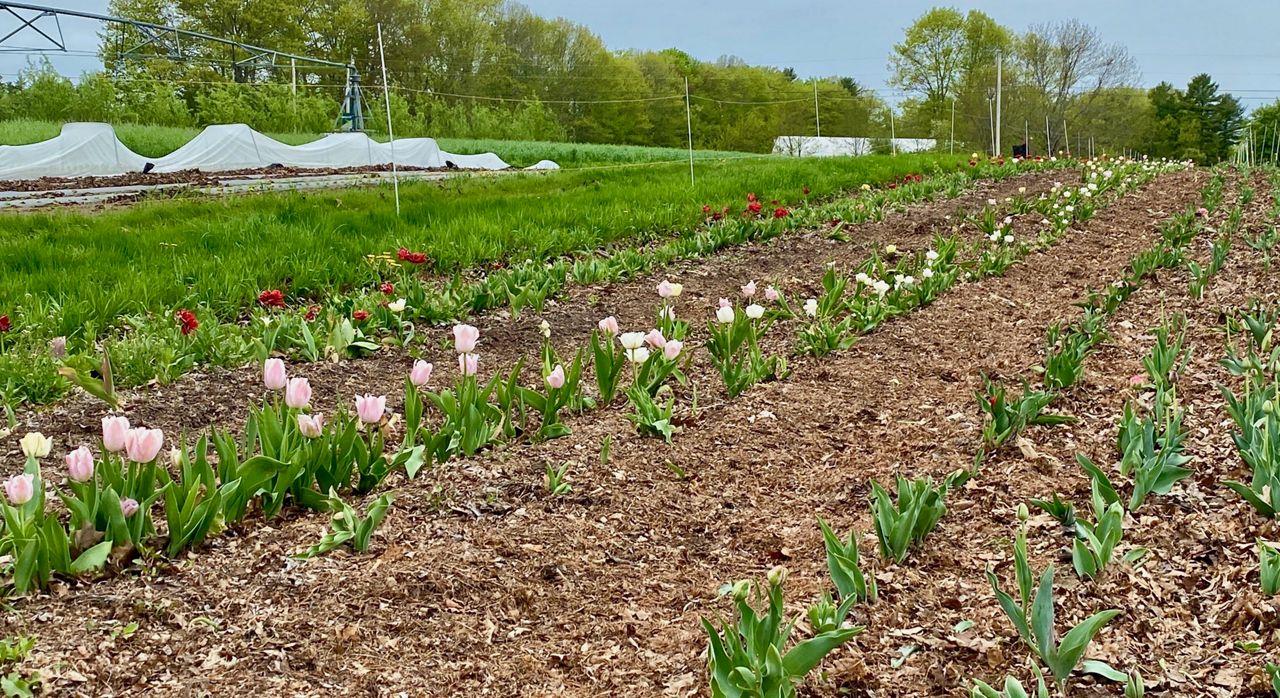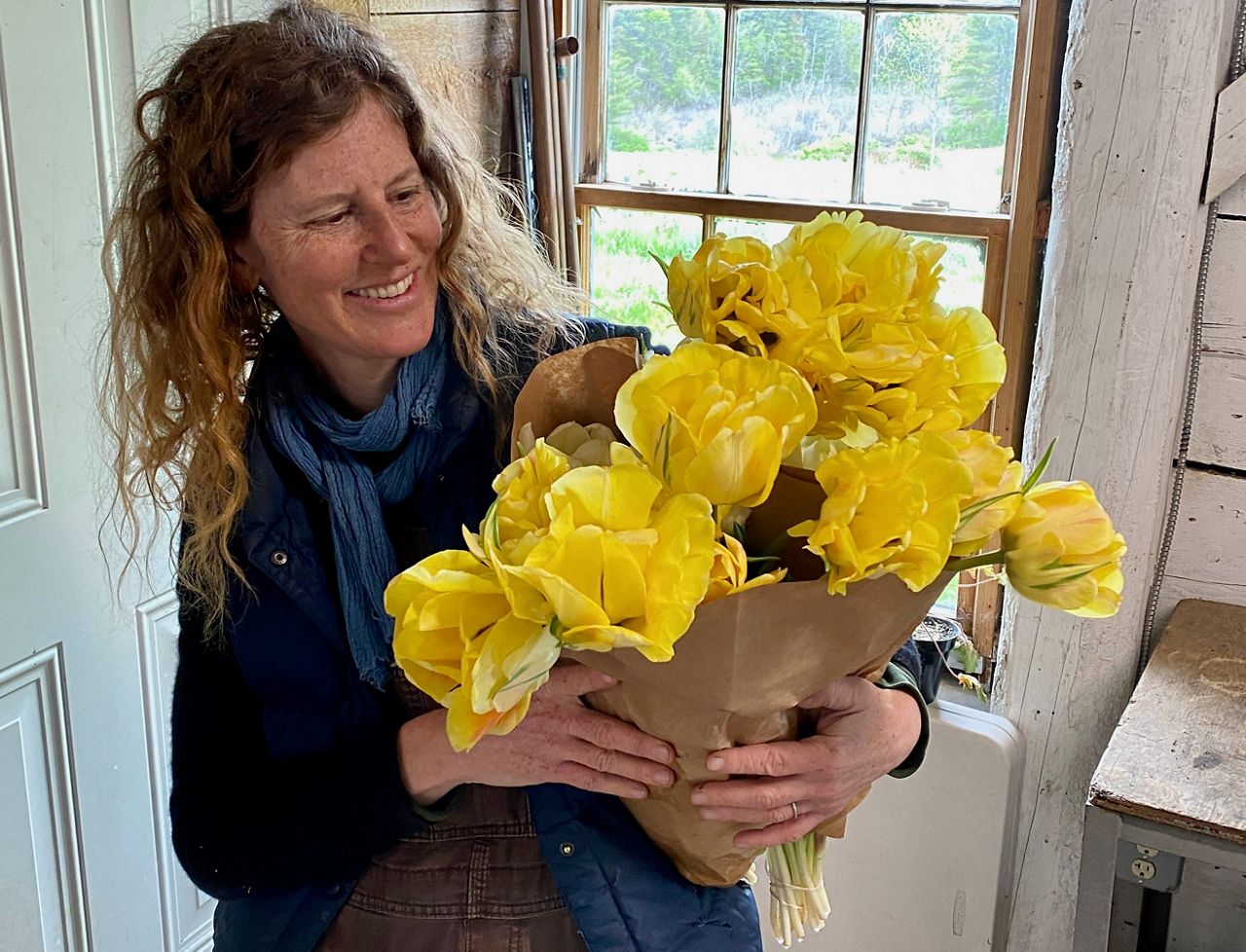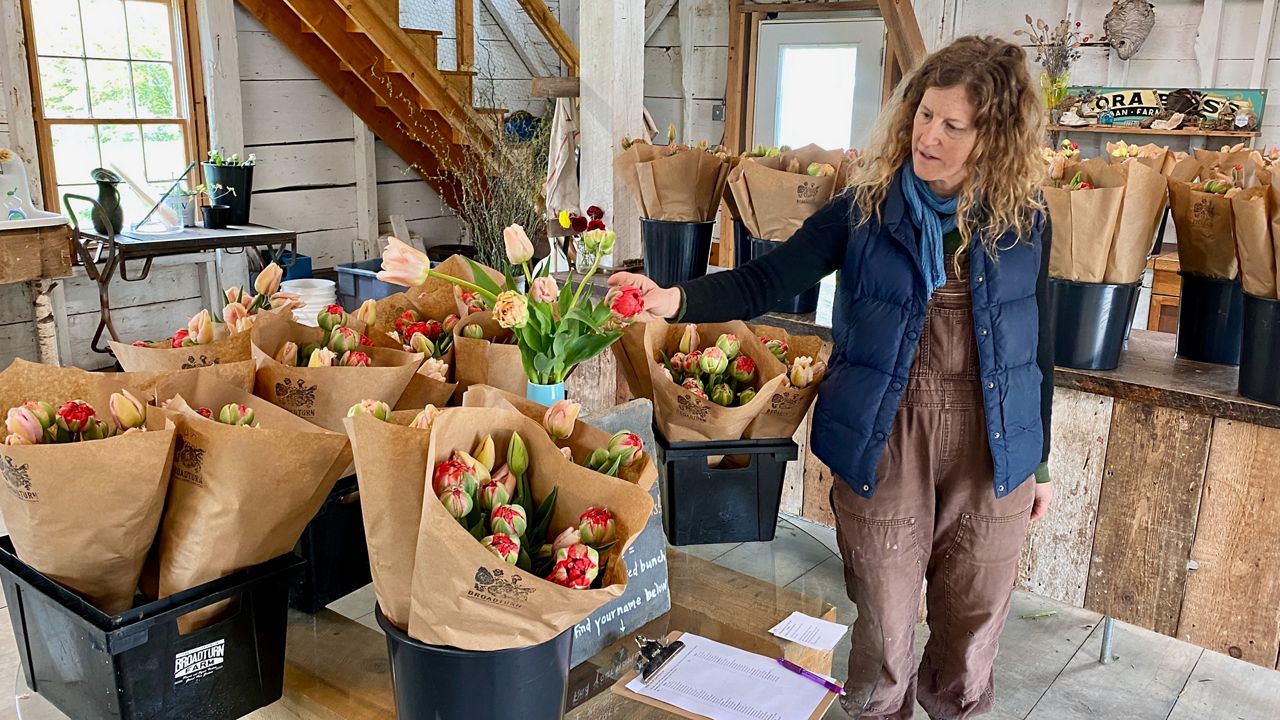On Thursday morning, workers at Broadturn Farm in Scarborough were all smiles as they worked with the current crop of hydrangeas, peonies, lilacs and other heralds of springtime in Maine.
The farm, Maine’s largest producer of cut flowers, is enjoying a business rebound after drastic slowdowns brought on by the coronavirus pandemic. Just as spring promises new growth, co-owner Stacy Brenner said she is looking forward to an economic future as bright as her yellow double-tulips.
“We feel a little bit back to normal,” said Brenner, who with her husband has owned and operated the popular local farm since 2006.
The farm started as a traditional food farm, Brenner said, offering vegetables, dairy, pork and eggs, but the feedback she kept getting from her staff was that they wanted to work with flowers, so the farm went through a transition in 2016. Today, the farm offers more than 350 varieties of flowers, ranging from perennials like hydrangeas, lilacs and peonies to bulbs like tulips, narcissus and alium.

Brenner said the farm sells to individual customers for special events, such as weddings, but also to breweries, restaurants, flower shops, hotels and other businesses. Her business clients stretch from Kennebunk to Brunswick, she said, but her staff travels all over New England for events.
All that changed, when the pandemic struck, shuttering restaurants and hotels and forcing people to cancel events like weddings.
“The design of our business was such that the pandemic was a disaster,” she said.
Brenner said the farm held together, but had to rely on federal stimulus funds, and, as Brenner put it, had to “un-hire” the three seasonal workers the farm usually employs. They even had to temporarily lay off some of the farm’s seven full-time workers, all of whom have been hired back, she said.
“As owners, we worked our tails off to stay afloat,” she said.

But there are signs of positive change. According to the Maine Office of Tourism’s 2022 Annual Report, the office predicts tourism, along with Maine-based businesses that rely upon it, will continue to rebound after showing improvement last summer.
“We are witnessing the release of pent-up demand for travel resulting from the COVID-19 pandemic and the start of the return of consumer optimism for our industry,” the report’s authors wrote. “Recent Destination Analyst insights highlight that 81% of American travelers report strong excitement for their travel this year and 86.2% are in a ready-to-travel state-of-mind.”
Brenner said she has noticed an uptick in business this year. Most notably, she said, weddings are back in full force. The farm is expecting to provide flowers to at least three weddings each weekend through the summer, which matches the pre-pandemic demand.
“We’re back at it. People are excited to have their weddings,” she said.
Some of the farm’s most popular flowers include peonies, dahlias, tulips and the ranunculus. On Thursday, Celeste Park, 37, of Portland, one of the farm’s workers, had a bud of the latter flower tucked into her hat as she worked with an arrangement. She grinned when asked about it, admitting it had gotten cut off by accident.
“Sometimes ‘tragic’ things happen and I have a hard time letting things go,” she said with a chuckle.
Park agreed that business has picked back up, but laughed and added “normal” is a relative term. Some customers, she said, are sticking with pandemic-induced habits, such as opting to order flowers in bulk from the farm to arrange themselves, rather than asking the farm to do all the work.
“We’re just happy to get the flowers to people however they want them,” she said.
The farm also sells flowers in its own on-site shop, including many through a subscription plan that lets buyers pick up weekly bouquets.
On Thursday, the shop was full of wrapped tulips for current subscribers. Brenner said there are about 200 subscribers to the farm’s summer plan, and she is getting ready, pointing on Thursday to a portion of the fields that contain a 400-foot-long bed of green, leafy bushes that will eventually yield peony blossoms.
“Those are going to explode in the beginning of June,” she said.



